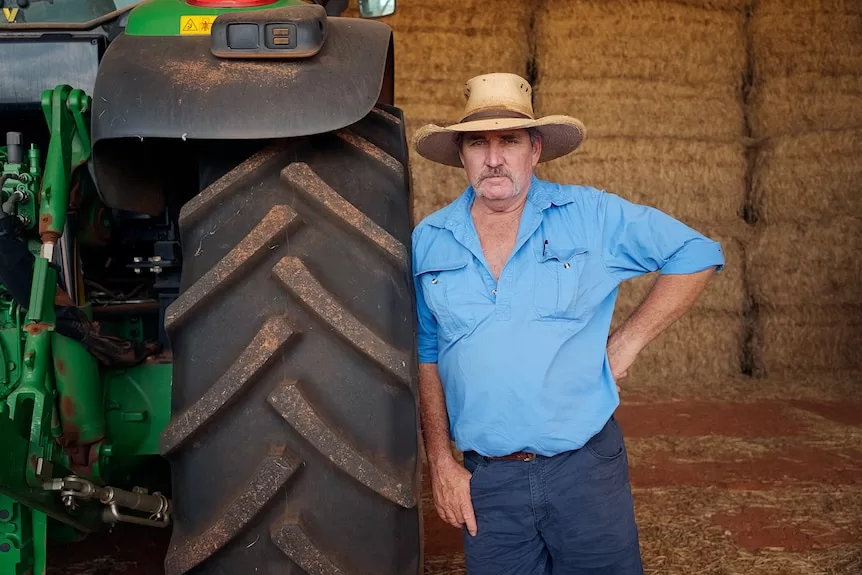- In short: The NT government’s new surface water policy means industry can take 5 per cent instead of 20 per cent of wet season flows.
- The policy has been welcomed by farmers and fishers, but some environment groups remain concerned.
- What’s next? The cost of pumping and storing water during the NT’s wet season is likely to remain unviable for many primary producers.
The Northern Territory government has released its long-awaited surface water policy, which reduces the amount of water that can be extracted from Top End rivers during the wet season.
The NT has long had an 80:20 policy, which enabled 20 per cent of river flows to be extracted for commercial use “at any time in any part of a river”, with the rest maintained for the environment.
The government said its new Surface water take — wet season flow policy was “highly precautionary” and reduced the volume of water available to industry during the wet season from 20 per cent to less than 5 per cent.
“This policy provides the right balance between supporting industry and protecting waterways, by giving certainty around surface water usage that does not compromise environmental and cultural values,” Environment Minister Kate Worden said.
Farmers and fishers welcome decision
Reducing the amount of water available for commercial use has often been met with criticism by industry in other states, but that has not been the case in the NT.
One farmer told ABC Rural that 5 per cent of wet season flow was “still a lot of water”, but the cost of pumping water and storing it for dry season-use was perhaps not viable in many locations, which was why there were few examples of businesses taking surface water during the wet season.
“Five per cent of the Daly River flood, for example, is more water than there is land suitable for irrigation,” the farmer said.
Bruce Connolly, who grew cotton on Tipperary Station and was a member of the government’s steering committee for the policy, said he welcomed the final outcome.
“We are currently experiencing growth in the agricultural sector in NT, and this policy will bring another level of confidence to all landholders wishing to develop their land for a range of different farming enterprises,” he said.
“The facts are this policy sets limits, which are very, very conservative in terms of actual wet season water extraction.”
Amateur Fishermen’s Association of the Northern Territory (AFANT) chief executive David Ciaravolo said the policy was “good news” for the recreational sector.
“It provides greater certainty and significantly more precaution in water harvest and planning for the Northern Territory, and that’s good news for the rivers and fish stocks like barramundi,” he said.
“It’s not to say that there isn’t more work to be done but it is a very positive development in this space.
“Of course, there is that caveat that a water allocation plan could set an amount above 5 per cent, and we will be focusing our attention on that area, because that is going to require ongoing work into the future.”
The government said the new policy would calculate the amount of water available based on dry conditions and, by setting minimum flow conditions in licences, it would not allow water to be taken in the driest years.
But Environment Centre NT executive director Kirsty Howey said the government’s new policy had “opened the floodgates for huge amounts of water to be taken”.
“This policy will allow for more water to be sucked from river systems and stored in private dams for thirsty cotton crops, fracking and mining,” she said.
“This could have devastating impacts on our rivers and floodplains.”
Future demand questionable
Amy Dysart from the Department of Environment and Water Security said claims made by some groups that this policy would allow businesses to take more water from NT rivers were “absolutely wrong”.
“Without having this policy in place, we would refer to the 80:20 rule and take 20 per cent of those [wet season] flows,” she told NT Country Hour.
The water resources executive director said there were many practical reasons why floodplain harvesting had never taken off in the NT and she was not expecting demand to change anytime soon.
“While there’s still alternative sources of water available [like groundwater], we expect businesses to use that before turning to this [surface water] and the reason is simple: it’s cost,” Ms Dysart said.
“To take water out when you don’t need it [during the wet season] means you have to store it somewhere until you do need it … you’ll need the infrastructure to support that.
“It’s going to cost a lot to use wet season water.”
